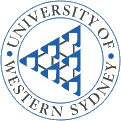Study Banking and FinanceWhy study FinanceTom Valentine UWS Nepean Australian financial institutions and markets have close relationships with their Asian counterparts, but they are also closely involved with the financial systems of the USA and Europe. The Australian financial system is very open, and many foreign financial institutions have operations there. Australia went through an extensive deregulation of its financial markets in the early 1980s, resulting in strong growth both in its size and in its sophistication over the last decade and a half. The results of this growth include:
However, this growth has required the increased education of many highly qualified professionals. As a result, Australian universities have developed a wide range of courses to educate students in both Finance and, more commonly, Applied Finance, in such areas as:
The courses have been designed in close consultation with potential employers in the Australian financial sector, satisfying the professional requirements of such industry organisations as the Australian Institute for Banking and Finance, and the Financial Planning Association. New courses are introduced and existing ones updated regularly, so that the programs are kept current with the most recent developments. In teaching their courses in Finance, Australian universities draw heavily on executives actually working in financial markets. Therefore, the courses cover real-world techniques as well as the theoretical basis. In addition, many of the Australian students undertaking the courses are part-time, and are themselves working in financial institutions and markets. Foreign students now constitute a significant proportion of the students enrolled in Australian Finance courses, therefore universities have gained a great deal of experience in teaching students from other countries. Consequently, they have adjusted their degrees, so that they cover the international aspects of Finance. Australian universities also have a range of other courses that provide support for Finance degrees. Accounting is a useful subject to combine with Finance, and Australian universities have a full range of offerings in this area, with courses allowing students to satisfy the requirements of many professional Accounting associations. Economics is also a useful subject to be taken in conjunction with Finance, because it allows a student to see how financial transactions fit into general economic activity. A few universities also offer courses in Actuarial Science, which allow students to qualify as actuaries. The Australian graduates of these courses are in high demand by local financial institutions. Overseas students graduating from them have found that their qualifications are fully recognised in their home countries. Graduates from Australian Finance courses hold positions in all the major Asian financial centres. Studying Finance in Australia is an enjoyable intellectual experience, and puts the student in touch with developments in this important sector of economy. It is also be the entry point to a career that is both stimulating and financially rewarding. Author Tom Valentine University of Western Sydney (Nepean)
|
| | ||||||||||||||||||

